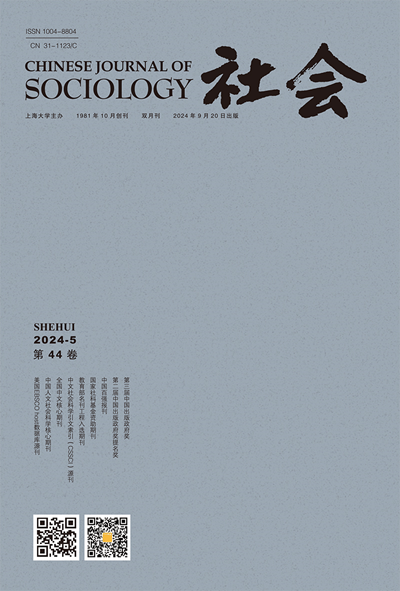Internet involvement, information consumption, and political participation in urban China
IF 1.8
4区 社会学
Q2 SOCIOLOGY
引用次数: 2
Abstract
The issue of whether the internet promotes political participation has always been a hotly debated topic in academia. However, current research lacks an effective classification of the modes of internet use, and it does not analyze their effect on different forms of political participation. Based on data from the 2015 and 2018 waves of the China Urban Governance Survey, this study offers an examination of the internet usage behavior of Chinese urban netizens from the perspectives of internet involvement and information consumption, as well as comparing the impact that different modes of internet use have on conventional and unconventional political participation. The results of this study confirm the “citizen-empowerment hypothesis” of internet use, and show that the “group involvement–social-information-oriented” mode of internet use has a positive effect on the conventional and unconventional political participation of urban internet users. However, the study fails to support the “time-displacement hypothesis”. It shows that the “individual involvement–entertainment-oriented” mode of internet use does not have a negative impact on the conventional and unconventional political participation of Chinese urban internet users. Similarly, the “group involvement–entertainment-oriented” mode of internet use has no significant effect on unconventional political participation. Taken together, the study shows that, in general, internet use has promoted the political participation of Chinese urban netizens, but there are significant differences between the different modes of internet use. As a revolutionary medium, the internet not only provides people with a convenient way of obtaining and communicating information, but also creates more challenges for state governance. The way in which the government should deal with different forms of political participation in the internet age will be an important research topic in the future.中国城市网络参与、信息消费与政治参与
互联网是否促进政治参与一直是学术界争论不休的话题。然而,目前的研究缺乏对互联网使用模式的有效分类,也没有分析它们对不同形式的政治参与的影响。本研究基于2015年和2018年中国城市治理调查的数据,从网络参与和信息消费的角度考察了中国城市网民的网络使用行为,并比较了不同的网络使用模式对传统和非传统政治参与的影响。本研究的结果证实了互联网使用的“公民赋权假说”,并表明“群体参与-社会信息导向”的互联网使用模式对城市互联网用户的传统和非传统政治参与具有积极影响。然而,该研究未能支持“时间位移假说”。研究表明,“个人参与-娱乐化”的网络使用模式对中国城市网民的传统和非传统政治参与没有负面影响。同样,“群体参与-娱乐导向”的互联网使用模式对非传统政治参与没有显著影响。总之,研究表明,总体而言,互联网使用促进了中国城市网民的政治参与,但不同的互联网使用模式之间存在显著差异。互联网作为一种革命性的媒介,不仅为人们提供了获取和交流信息的便捷方式,也给国家治理带来了更多挑战。在网络时代,政府应如何处理不同形式的政治参与将是未来的一个重要研究课题。
本文章由计算机程序翻译,如有差异,请以英文原文为准。
求助全文
约1分钟内获得全文
求助全文
来源期刊

社会
Social Sciences-Social Sciences (all)
CiteScore
1.70
自引率
0.00%
发文量
6799
期刊介绍:
The Chinese Journal of Sociology is a peer reviewed, international journal with the following standards: 1. The purpose of the Journal is to publish (in the English language) articles, reviews and scholarly comment which have been judged worthy of publication by appropriate specialists and accepted by the University on studies relating to sociology. 2. The Journal will be international in the sense that it will seek, wherever possible, to publish material from authors with an international reputation and articles that are of interest to an international audience. 3. In pursuit of the above the journal shall: (i) draw on and include high quality work from the international community . The Journal shall include work representing the major areas of interest in sociology. (ii) avoid bias in favour of the interests of particular schools or directions of research or particular political or narrow disciplinary objectives to the exclusion of others; (iii) ensure that articles are written in a terminology and style which makes them intelligible, not merely within the context of a particular discipline or abstract mode, but across the domain of relevant disciplines.
 求助内容:
求助内容: 应助结果提醒方式:
应助结果提醒方式:


